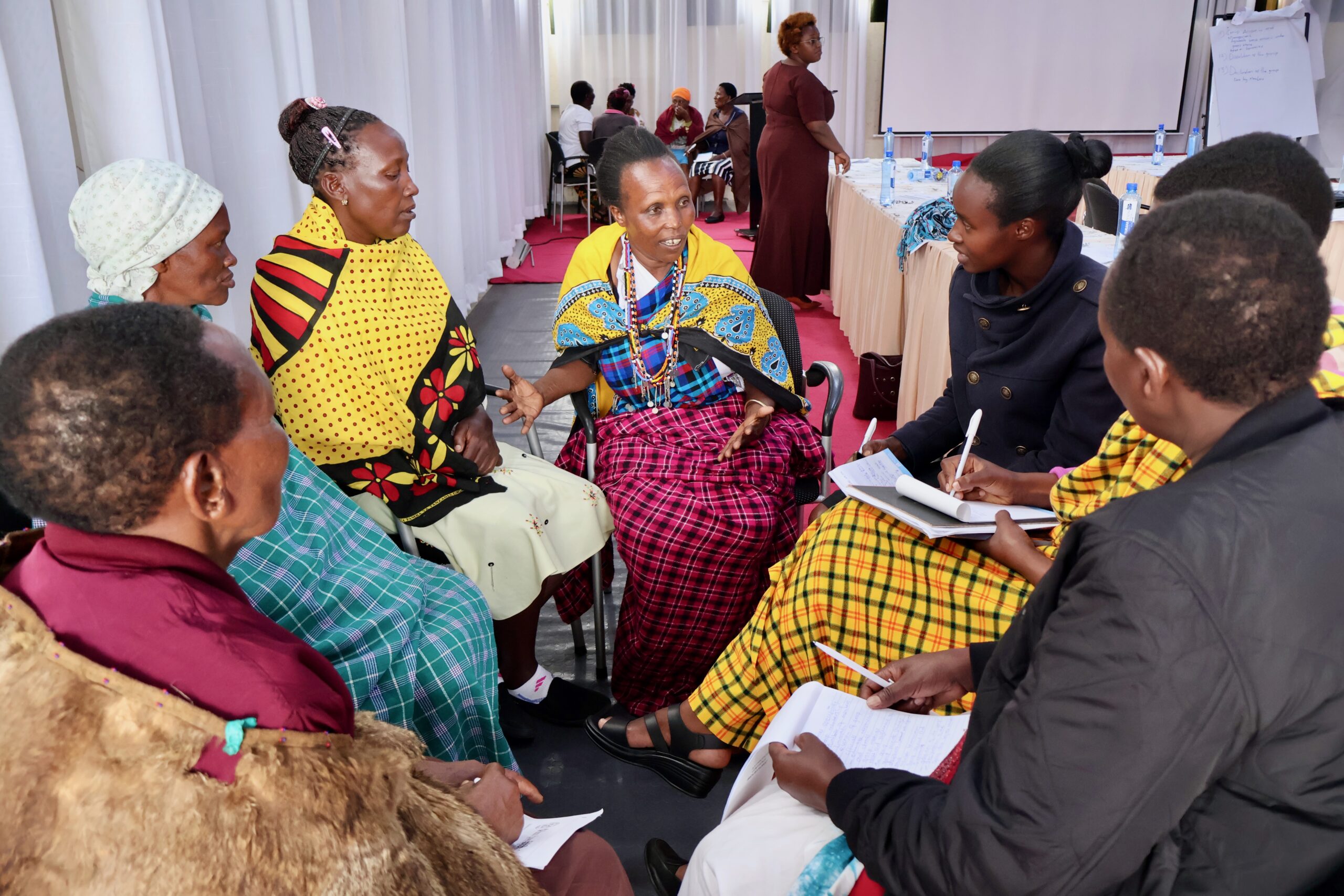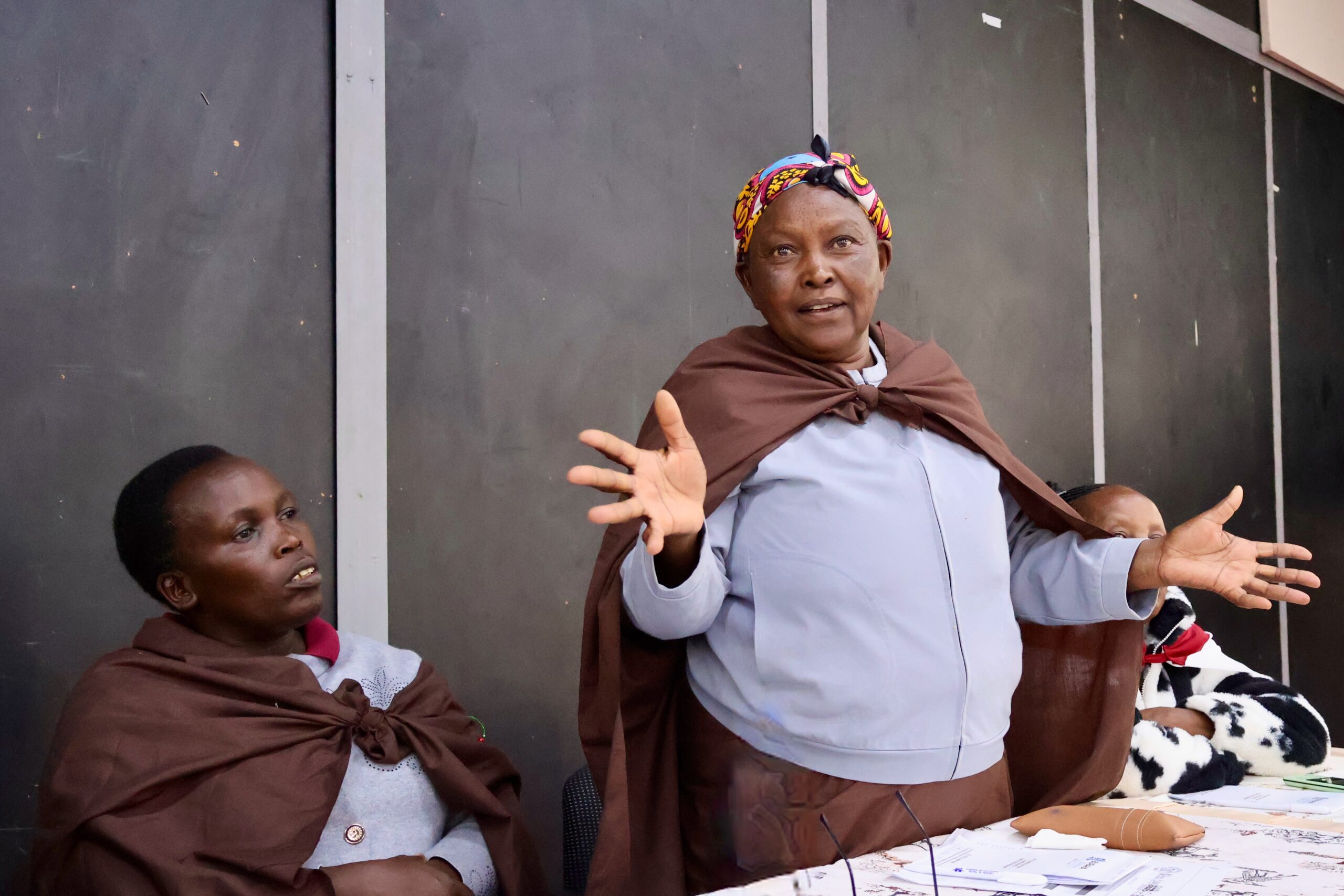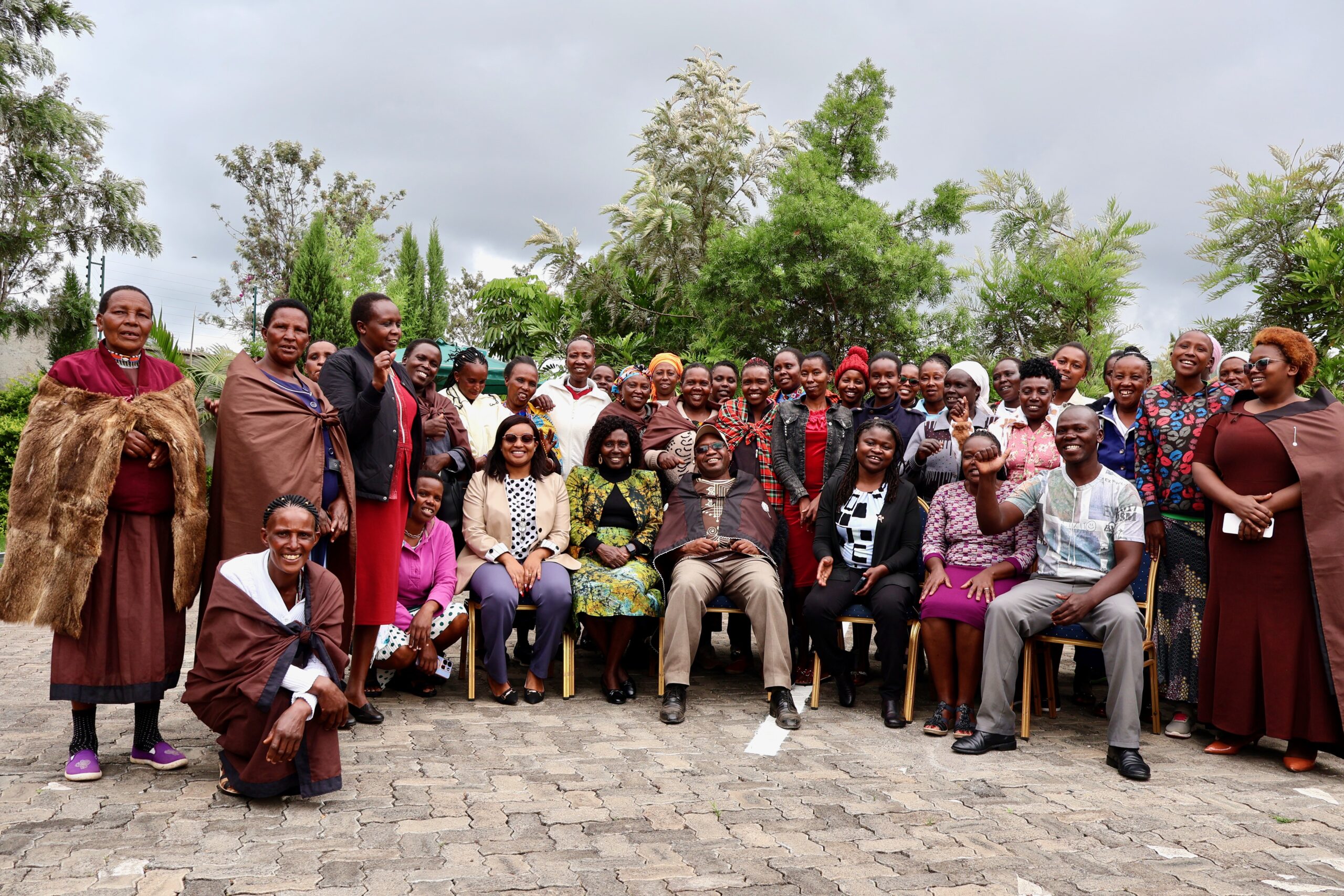Leadership and economic empowerment among Ogiek Women in Mau, Kenya
32 women participated in a workshop on leadership, negotiation and group dynamics for their management of Indigenous businesses

In the heart of the Mau Forest, Kenya, a transformative initiative is underway for Ogiek Indigenous women leading socio-economic empowerment of their businesses and communities.
Through a collaborative effort between the Ogiek Peoples’ Development Program (OPDP) and the FSC Indigenous Foundation (FSC-IF), the “Promoting Socio-Economic Empowerment among Ogiek Women of Mau” project is designed to equip women leaders with essential skills in leadership and business management, fostering their ability to create sustainable economic opportunities.
Ogiek women, who have long faced significant challenges due to historical injustices and marginalization, are developing the skills and tools they need to thrive so they can advocate for their community’s rights and future. In the project, 16 women’s groups have been selected to receive seed funding and relevant training, using a train-the-trainers methodology.
Day 1: Leadership and Group Management
The workshop, held in Nakuru, Kenya in July 2024, began with a prayer and participant introductions, where attendees shared their names and affiliations. Ms. Eunice Chepkemoi from OPDP outlined the workshop’s goals, emphasizing the importance of empowering Ogiek women. Christopher Kipkones, Chairperson of OPDP Board, officially opened the workshop and highlighted the significance of the workshop for enhancing socio-economic projects in the community. He reiterated OPDP’s mission to address historical injustices and improve the socio-economic status of Ogiek women.
The first training session, led by Mary Omukhango from Uwezo Fund, a Kenya government empowerment fund, focused on effective group formation and management. Participants learned about different types of groups, the benefits of collaboration, and the five stages of group development. In the second session, participants were guided through drafting group constitutions, emphasizing the importance of governance and collaboration. The day concluded with discussions on potential funding sources and the value of networking for sustainability.
“It is not wrong to be born poor, but it is wrong to die poor,” said Eunice Chepkemoi, underscoring the session’s theme of empowerment and self-sufficiency.

Day 2: Leadership and Business Skills
The second day centered on leadership qualities and the development of viable business ideas. Participants discussed the attributes of effective leaders and the challenges they may face, including disagreements and need for vision. Key roles within groups were defined, with shared experiences underscoring the necessity for transparency in managing group resources. Participants were encouraged to explore market opportunities and adapt to changing environments.
“Know who you are; you are more than what you think you are,” said the facilitator, emphasizing a message of empowerment.
The session also included brainstorming business ideas, with groups presenting innovative concepts that addressed community needs. Mary Omukhango the facilitator, emphasized the importance of collective agreement on business initiatives to ensure commitment.
Day 3: Business and Management Skills
The final day began with a recap of previous sessions, reinforcing the idea that business is essential for poverty eradication. The first session covered branding and advertising, highlighting the importance of creating a unique brand identity and effective marketing strategies. Participants learned about the significance of clear communication and customer understanding.
Subsequent discussions focused on the necessity of accurate record keeping for transparency and the vital role of monitoring and evaluation in project management. Participants were encouraged to adopt recommendations for sustainability, including capacity building and diversifying income sources.
In closing, Daniel Kobei, Executive Director of OPDP urged participants to share their knowledge within the Ogiek community and to innovate for financial independence. He framed the training as the beginning of their empowerment journey, emphasizing the importance of applying what they learned for their collective success.
“We will follow up on your projects to ensure they are on the right track, do work for the community and apply what you have learned. This is just the beginning of your journey towards empowerment and success,” he said.
Follow our website and social media for the latest updates on how these sixteen Ogiek women’s groups are leading transformative change.
We invite organizations and entities to become our financial and technical partners to continue and multiply the important impact of this project and other crucial initiatives. If your organization or business is interested in collaborating with us and with Indigenous women for sustainable change, we invite you to connect at fsc.if@fsc.org.

